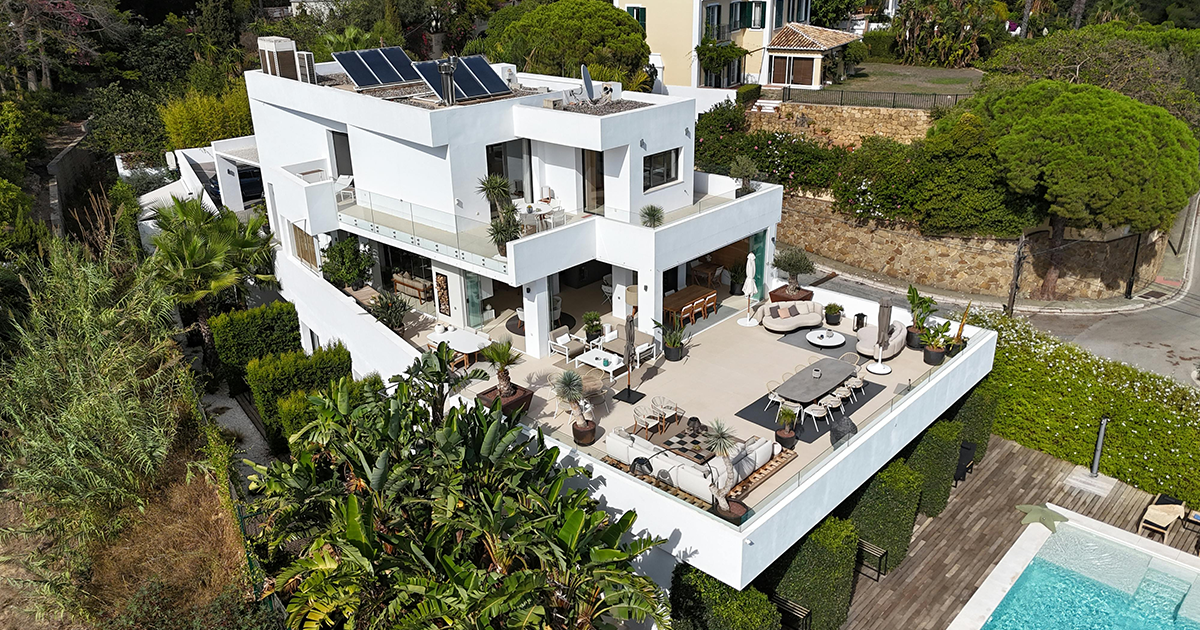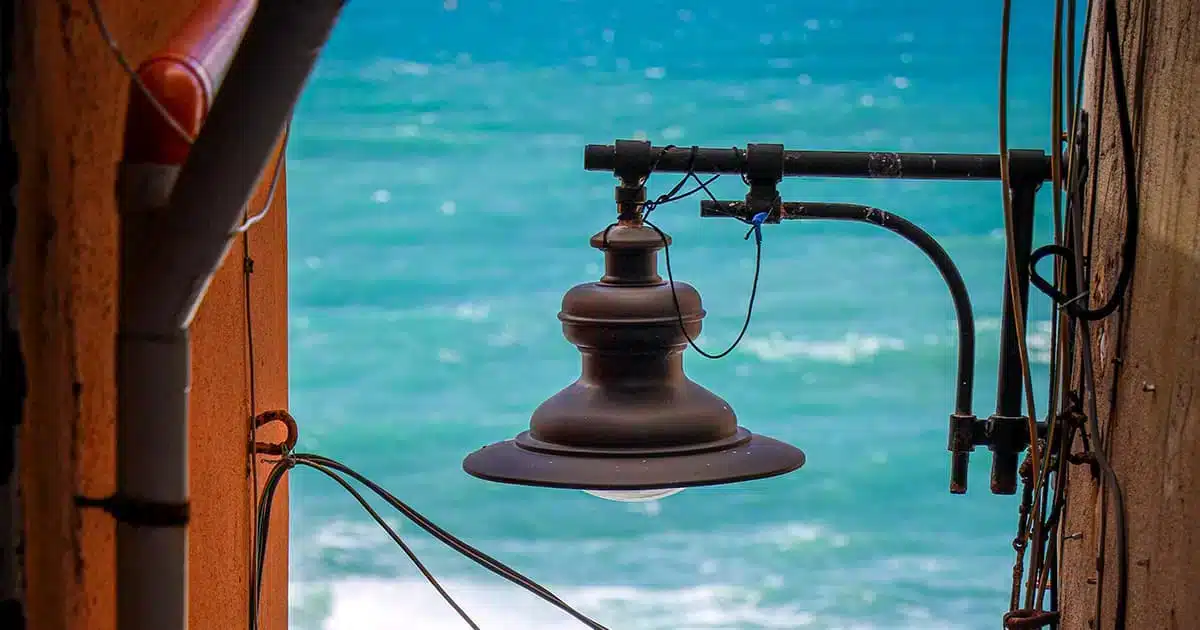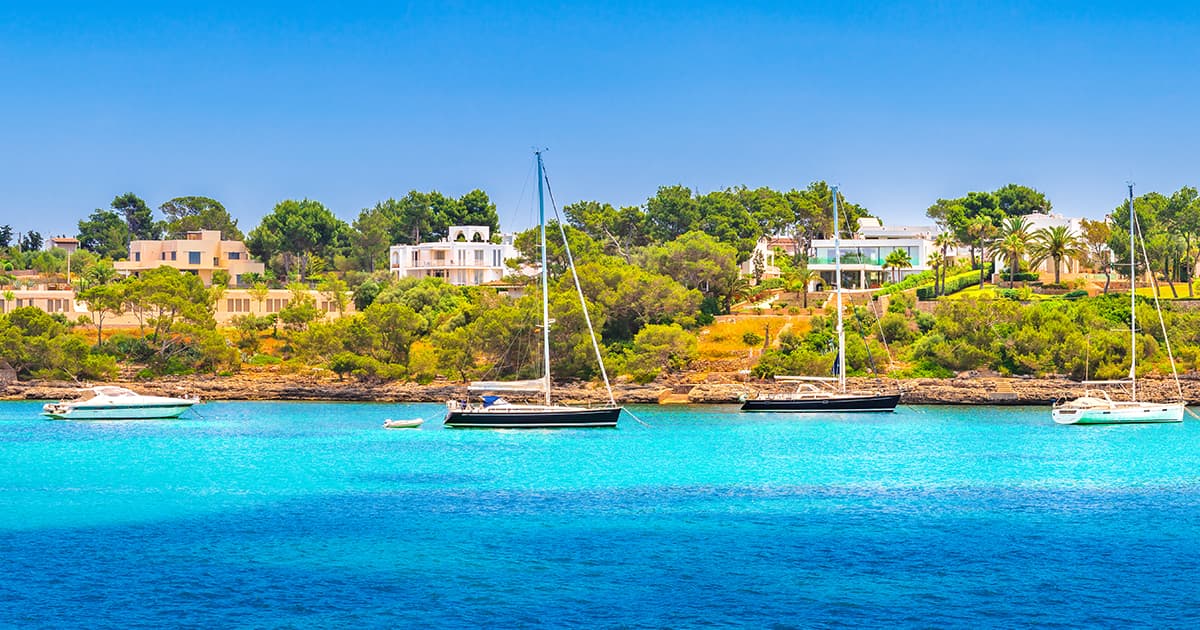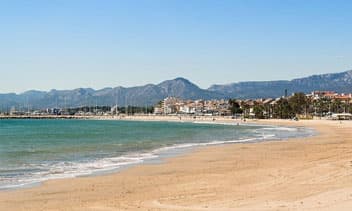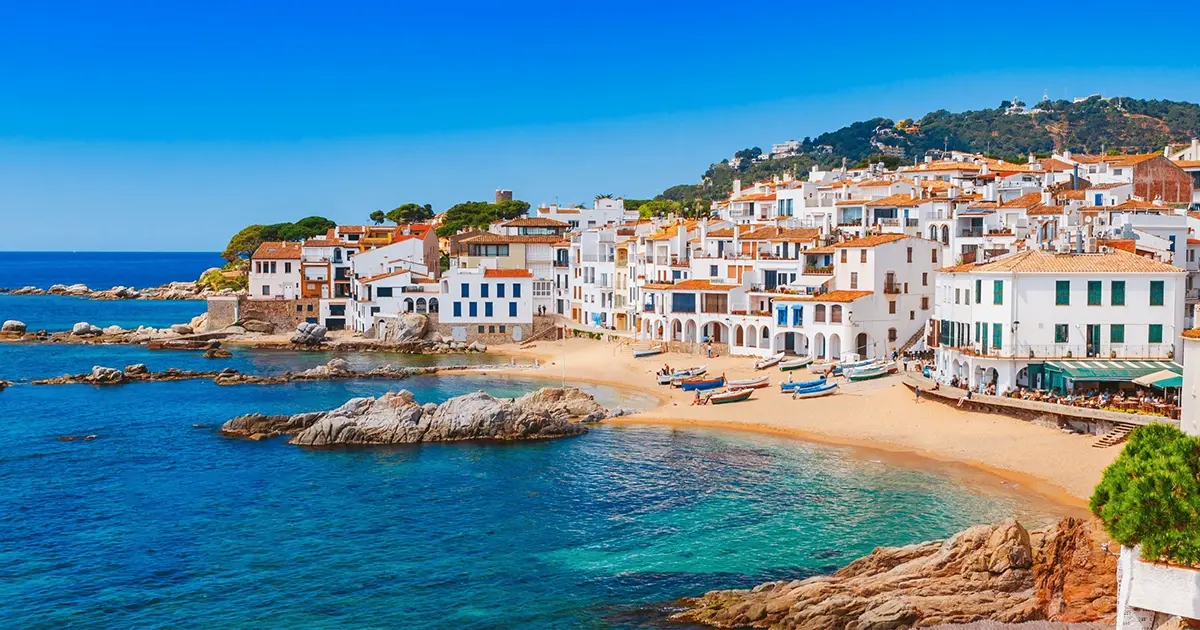
Buying a House in Spain in 2025: A Guide for Foreign Buyers
Last update: November 5, 2025
Reading time: 19.7 min
No Time to Read It All? Here’s the Quick Summary:
Buying property in Spain in 2025 remains a smart move for foreign buyers. Despite global uncertainty, demand is high, supply is tight, and prices are rising—especially in sought-after areas like Costa del Sol, Madrid, Valencia, and Alicante.
Foreigners can buy without restrictions, but must obtain a NIE (Foreigner Identification Number) and budget 10–15% in additional costs for taxes, notary fees, legal services, and registration.
Mortgages are available from Spanish banks. Non-residents can typically finance up to 70%, while residents may secure up to 80%, with SpainEasy assisting in pre-approval and negotiation.
The Golden Visa is no longer available, but other residency options exist—including the Non-Lucrative Visa for retirees and the Digital Nomad Visa for remote workers.
The purchase process involves a reservation contract, a 10% deposit, full legal due diligence, and final signing at a notary. A lawyer is highly recommended—and fully coordinated through SpainEasy.
Spain remains a top choice for its stable real estate market, strong rental yields, and enviable lifestyle.
Still deciding if it’s right for you? Dive into our full guide to understand the process, costs, and how SpainEasy makes it all easier.
How to Buy Property in Spain in 2025: A Complete Guide for Foreign Buyers
Spain remains one of the most attractive and accessible real estate markets in Europe for foreign buyers in 2025. Its Mediterranean climate, growing property values, and buyer-friendly laws make it ideal for retirees, remote workers, and investors alike.
From vibrant cities like Madrid and Barcelona to coastal destinations such as Alicante, Málaga, and Valencia, Spain offers options for a range of budgets and lifestyles. But navigating a property purchase abroad comes with legal, financial, and logistical complexities—especially if you’re unfamiliar with the system.
This is where SpainEasy steps in.
We guide foreign buyers through the entire process, from property search to closing and post-sale assistance. With in-depth knowledge of Spain’s urban and coastal markets, and a team experienced in international transactions, we ensure your purchase is smooth, secure, and fully supported.
In this updated 2025 guide, you’ll learn:
- How the Spanish real estate market is performing this year
- What legal and financial steps are required for non-residents
- Where to buy based on your goals and lifestyle
- Mistakes to avoid—and how SpainEasy helps you stay ahead
Whether you’re investing, relocating, or retiring, this guide provides everything you need to buy property in Spain with confidence.

Quick Summary: Key Takeaways for Busy Buyers
A Growing Market Backed by Strong Demand
Buying property in Spain in 2025 remains a strong opportunity for foreign buyers. Demand is high, supply is limited, and prices are rising—especially in areas like Costa del Sol, Valencia, Alicante, Barcelona, and Madrid.
Foreigners can purchase property freely, but must complete key legal steps, including obtaining an NIE (Foreigner Identification Number) and preparing for 10–15% in additional costs such as taxes and legal fees.
Mortgages are available to non-residents, typically covering up to 70% of the purchase price. SpainEasy works with trusted Spanish banks to simplify financing and secure pre-approval.
The buying process includes a reservation contract (Contrato de Arras), a 10% deposit, legal due diligence, and final signing at the notary. SpainEasy oversees every step—from paperwork and negotiation to translation and closing.
With the Golden Visa ending in 2025, other residency paths like the Non-Lucrative Visa and Digital Nomad Visa remain available for qualifying buyers.
SpainEasy offers complete support, including:
- Property search and viewing coordination
- NIE application assistance
- Legal and financial guidance
- Notary representation and post-sale setup
Spain offers excellent property value in 2025, but expert guidance is essential. SpainEasy ensures a secure, efficient, and stress-free experience.
Why Spain Remains a Top Destination for Foreign Property Buyers
Spain continues to attract international buyers in 2025, offering an ideal mix of lifestyle appeal, strong investment potential, and accessible legal structures.
Lifestyle and Quality of Life
With over 300 days of sun, excellent healthcare, world-class infrastructure, and a relaxed Mediterranean lifestyle, Spain appeals to retirees, digital nomads, and families alike. From the beaches of Costa Blanca to the culture of Madrid and Barcelona, it offers a wide variety of living environments.
Competitive Prices Compared to Western Europe
Despite rising property values, Spain remains more affordable than France, Germany, or Italy. Cities like Valencia, Alicante, and Granada continue to offer excellent value, making Spain especially attractive to UK retirees, North American professionals, and Northern European investors.
SpainEasy helps clients identify the right location based on goals and budget, whether you’re looking for capital growth or affordable coastal living.
Strong Rental Performance
In 2024, rental prices rose by over 11%, driven by high demand and limited housing supply. Cities like Madrid, Valencia, and Barcelona offer gross yields of 4–7%, and long-term rentals remain a reliable option in areas with stricter short-term rental laws.
Consistent Foreign Demand
Foreign buyers made up over 15% of all property purchases in 2024, led by British, French, German, Dutch, and American nationals. Infrastructure improvements and expat-friendly services continue to support long-term demand.
At SpainEasy, we’ve guided buyers from over 20 countries. Our deep understanding of local markets and international buyer expectations makes the process smoother, safer, and more efficient.
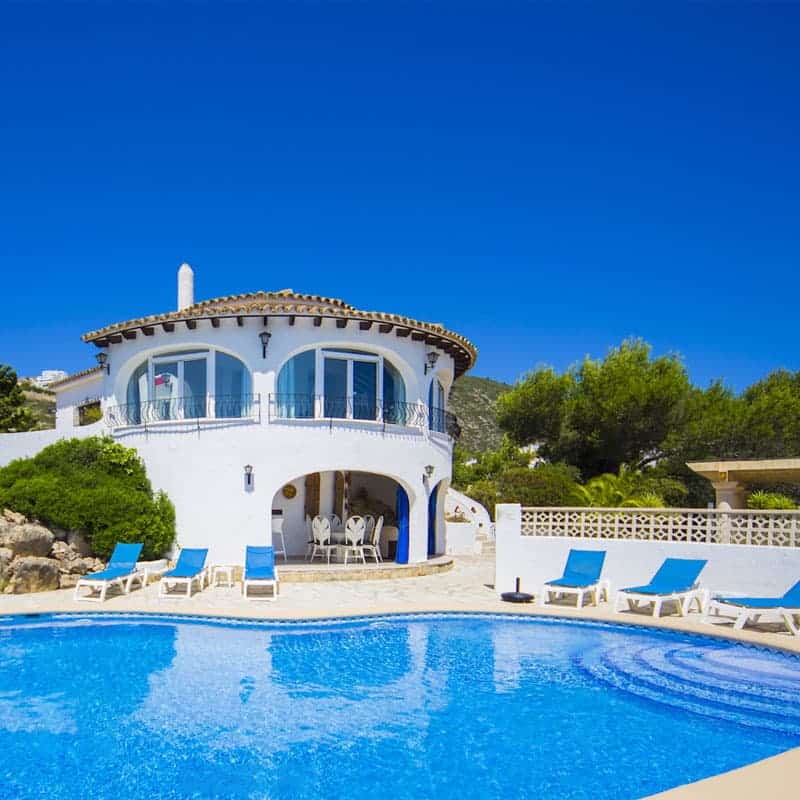
Spain’s 2025 Real Estate Market Trends: What Buyers Should Expect
Spain’s real estate market remains strong in 2025, with steady price growth and high demand despite wider economic uncertainty. Foreign buyers continue to drive activity, especially in coastal and urban regions.
Rising Prices in Key Areas
In 2024, national property prices rose by 9.6%, with even sharper increases in top locations:
- Alicante: +21.3%
- Valencia: +19.8%
- Balearic Islands: +19.5%
- Madrid: +13.6%
- Costa del Sol: +12.4%
These regions continue to attract retirees, digital nomads, and investors due to lifestyle quality, infrastructure, and growth potential.
SpainEasy specializes in these high-demand areas, offering clients access to prime listings and expert guidance on emerging opportunities.
Strong Foreign Buyer Activity
Over 87,000 properties were bought by non-residents in 2024, accounting for 15.2% of transactions. Interest remains high in 2025, especially from:
- US and Canadian buyers benefiting from euro exchange rates
- British, French, German, and Dutch nationals
- Remote workers relocating for lifestyle and tax advantages
Spain’s clear legal process and market transparency make it one of the most accessible countries in the EU for foreign buyers.
SpainEasy ensures buyers navigate legal, tax, and procedural steps with ease and confidence.
Tight Rental Supply and Growing Demand
Estimated Cost: 6–10% (varies by region)
Estimated Cost: 10% + 1.5%
Estimated Cost: 1–2%
Estimated Cost: ~1%
Estimated Cost: Varies by property value
Estimated Cost: 19–24% (on rental income or imputed value)
Source: Idealista, Indomio.es (2025)
Between 2021–2023, housing construction lagged far behind household formation. As a result:
- Rental prices are up 11–13% year-on-year
- Long-term rentals outperform in most cities
- Short-term letting is more restricted, especially in Barcelona and Palma
Well-managed long-term rentals now offer yields of up to 7% in select coastal and urban areas.
SpainEasy helps clients assess local rental laws and licensing requirements, ensuring compliance and maximizing returns.
Legal & Financial Requirements: What Foreign Buyers Must Prepare
Yes, foreign buyers can purchase property in Spain—but there are key legal and financial steps to complete. SpainEasy ensures the process is smooth, secure, and fully compliant with local regulations.
1. NIE Number (Foreigner Identification Number)
This is required for signing contracts, paying taxes, and finalizing the purchase.
SpainEasy handles the entire NIE application—booking your appointment, preparing documents, and assisting in person or by proxy.
2. Opening a Spanish Bank Account
Not mandatory, but highly recommended for:
- Managing taxes and utility bills
- Securing financing
- Automating property-related payments
SpainEasy simplifies account setup through our trusted banking partners.
3. Mortgages for Foreign Buyers
You can apply for financing in Spain, though terms depend on your residency status:
| Buyer Type | Loan-to-Value | Notes |
|---|---|---|
| Non-resident | Up to 70% | More paperwork, higher interest |
| Resident | Up to 80% | Better terms and easier approval |
We work directly with mortgage brokers to help you get pre-approved and secure competitive rates.
Mortgage Calculator
| Property Value | Down Payment (30%) | Mortgage Amount (70%) | Monthly Payment
% Interest,
Years
|
|---|---|---|---|
| €200,000 | €60,000 | €140,000 | €741 |
| €500,000 | €150,000 | €350,000 | €1,853 |
| €1,000,000 | €300,000 | €700,000 | €3,706 |
| €0 | €0 | €0 |
4. Taxes and Additional Costs
Budget an extra 10–15% on top of the purchase price for:
| Expense | Typical Cost |
|---|---|
| Property Transfer Tax | 6–10% (resale homes) |
| VAT + Stamp Duty | 10% + 1.5% (new builds) |
| Notary & Land Registry | 1–2% |
| Legal Fees | ~1% |
| Annual IBI Tax | Based on cadastral value |
Expense : Property Transfer Tax
Typical Cost : 10% + 1.5% (new builds)
Typical Cost : 1–2%
Typical Cost : ~1%
Typical Cost : Based on cadastral value
Typical Cost : 19–24% on rental/imputed use
Sources : Agencia Tributaria, Idealista
SpainEasy provides a Property Tax Calculator to help you estimate your full budget in advance.
5. Residency and Visa Options
Property ownership doesn’t grant residency, but it can support visa applications. With the Golden Visa ending, key options include:
- Non-Lucrative Visa – for retirees or passive income holders
- Digital Nomad Visa – for remote workers
- Entrepreneur Visa – for business founders
SpainEasy connects you with legal experts to align your property plans with the right visa strategy.
Why Choose SpainEasy?
We offer complete support throughout the process:
- NIE and bank account assistance
- Trusted financing partners
- Transparent tax planning
- Legal coordination and due diligence
- Notary support and document translation
“They handled everything—I didn’t need to worry about a thing.”
— Carla M., US buyer in Alicante

Step-by-Step Guide to Buying Property in Spain (With SpainEasy’s Support)
Buying property in Spain as a foreigner can feel complex—but with the right guidance, it becomes a clear, well-managed process. Here are the eight essential steps to make your journey smooth, transparent, and efficient.
Step 1: Define Your Budget and Financing
Plan for the property price plus 10–15% in additional costs like taxes and legal fees. Getting a mortgage pre-approval can also clarify your options early on.
Step 2: Obtain Your NIE Number
The NIE (Foreigner Identification Number) is required to sign any official documents, open a bank account, and pay taxes in Spain.
Step 3: Open a Spanish Bank Account
Having a local account makes it easier to pay for utilities, manage your mortgage, and handle day-to-day expenses.
Step 4: Search and View Properties
Start with a clear vision of your ideal location, property type, and usage—holiday home, rental investment, or full-time residence.
Step 5: Make an Offer and Sign the Contract
Once you’ve found a suitable property, you’ll submit an offer and, if accepted, sign a reservation contract with a deposit (typically 10%).
Step 6: Legal Checks and Mortgage Finalization
A lawyer will confirm the property is free of debts or legal issues, while your financing is finalized if needed.
Step 7: Sign at the Notary
The title deed is signed before a notary, and final payment is made. Ownership is then officially transferred.
Step 8: Register the Property and Set Up Utilities
After signing, your ownership must be recorded with the Land Registry. Utilities, taxes, and insurance also need to be arranged.
Costs of Buying Property in Spain: Taxes, Fees, and What to Budget
Beyond the purchase price, foreign buyers in Spain should expect to pay an additional 10–15% in transaction costs. These include taxes, legal fees, and administrative charges, which vary based on region, property type, and financing needs.
Key Costs to Consider
| Expense | Typical Cost | Applies To |
|---|---|---|
| Property Transfer Tax (ITP) | 6–10% | Resale properties |
| VAT + Stamp Duty (AJD) | 10% + 1–1.5% | New builds |
| Notary & Registry Fees | 1–2% total | All purchases |
| Legal Fees | 0.8–1.5% | Highly recommended |
| Mortgage/Bank Fees | Varies | If financing |
| Annual Property Tax (IBI) | 0.4–1.1% of cadastral value | All properties |
| Non-Resident Income Tax | 19–24% (on rental or imputed value) | If rented or secondary use |
Typical Cost : 6–10%
Applies To : Resale properties
Typical Cost : 10% + 1–1.5%
Applies To : New builds
Typical Cost : 1–2% total
Applies To : All purchases
Typical Cost : 0.8–1.5%
Applies To : Highly recommended
Typical Cost : Varies
Applies To : If financing
Typical Cost : 0.4–1.1% of cadastral value
Applies To : All properties
Typical Cost : 19–24% (on rental or imputed value)
Applies To : If rented or secondary use
Sources : Agencia Tributaria, Idealista, BBVA
SpainEasy reviews all expected costs with you in advance, ensuring accurate budgeting from the start.
Tax Calculator Tool
Use our free SpainEasy Property Tax Calculator to estimate:
- Total upfront costs
- Annual tax obligations
- Rental-related tax deductions
Common Hidden Costs
Foreign buyers often overlook:
- Currency exchange fees
- Homeowners association charges
- Tourist license applications (for rentals)
- Delays in utility setup due to paperwork issues
Financing Considerations
Mortgage-related costs may include:
- Valuation fees
- Arrangement charges
- Monthly repayment planning
How SpainEasy Helps
- Full cost breakdown before purchase
- Smart budgeting with currency and fee optimization
- Ongoing financial guidance throughout your transaction
Where to Buy in Spain: Top Regions for Lifestyle and Investment
Spain offers a wide range of property options—beachfront villas, urban apartments, countryside homes—making location choice essential to achieving your goals. At SpainEasy, we guide clients across the country, with a strong focus on coastal and urban markets where lifestyle and investment value intersect.
Costa del Sol (Málaga, Marbella, Estepona)
- Best for: Retirement, luxury, short-term rentals
- Why: Over 300 sunny days, international amenities, up to 7% rental yields
Barcelona
- Best for: Investors, digital nomads, long-term rentals
- Why: Strong economy, global appeal, limited tourist rental zones
Valencia & Costa Blanca (Alicante, Dénia, Jávea)
- Best for: Families, lifestyle buyers, retirees
- Why: Affordable living, rapid price growth, growing expat presence
Balearic Islands (Mallorca, Ibiza, Menorca)
- Best for: Holiday homes, lifestyle investments
- Why: High-end market, seasonal rental demand, strict licensing rules
Canary Islands (Tenerife, Gran Canaria, Lanzarote)
- Best for: Winter rentals, remote work, affordable investments
- Why: Year-round tourism, lower prices, tax benefits
Madrid
- Best for: Long-term investors, professionals
- Why: Economic center, solid rental market, growing population
Murcia & Costa Cálida
- Best for: Budget-conscious buyers, early investors
- Why: Low prices, good weather, developing infrastructure
Not Sure Where to Start?
Whether you’re investing, relocating, or buying a second home, SpainEasy matches your goals to the right location—with guidance on local laws, permits, and market conditions.
Residency & Visa Options in 2025: What Changes and What Remains
Buying property in Spain doesn’t automatically grant residency, but it can support your visa application. With the Golden Visa phased out in 2025, non-EU buyers must now explore alternative, but still accessible, pathways.
Golden Visa Discontinued
The Golden Visa—formerly available to non-EU citizens investing €500,000+ in property—is no longer open to new applicants as of 2025. Existing holders may continue to renew, but new applications are no longer accepted.
Residency Alternatives for Non-EU Buyers
Non-Lucrative Visa (NLV)
For retirees or those with passive income
- Cannot engage in paid work in Spain
- Minimum income: ~€2,400/month (+€600/dependent)
- Renewable: 1-year permit followed by multi-year extensions
SpainEasy connects you with trusted immigration lawyers for application support and compliance.
Digital Nomad Visa
For remote workers employed by non-Spanish companies
- Income requirement: ~€2,600/month
- Eligible for reduced taxation under the Beckham Law
- Valid for up to 5 years, family members included
Popular among U.S., Canadian, and European buyers, especially in urban or coastal hubs.
Entrepreneur Visa
For those launching approved business ventures in Spain
- Requires a viable business plan and economic contribution
- Common in hospitality, tourism, and tech sectors
SpainEasy can help align your property and business plans, especially in tourist zones.
Family Reunification & Student Visas
- Dependent visa: for relatives of legal residents
- Student visa: for those attending recognized educational institutions
We assist families with property near schools and coordinate timelines with your application.
How SpainEasy Helps
- Advice on visa types linked to your property plans
- Referrals to immigration experts
- Support with required documents (ownership proof, registration)
- Guidance on regions with favorable living costs, healthcare, and infrastructure
“SpainEasy didn’t just help us buy a home—they made our entire move to Spain possible.”
— Martin & Elena B., buyers from South Africa

Common Mistakes Foreign Buyers Make (And How SpainEasy Helps You Avoid Them)
Buying property abroad can be rewarding—but also risky without the right guidance. At SpainEasy, we’ve helped hundreds of buyers avoid the common pitfalls that cost time, money, and peace of mind.
Mistake 1: Underestimating Total Costs
Many buyers overlook taxes, legal fees, and currency transfer costs.
Mistake 2: Delaying the NIE Process
Without a NIE, you can’t sign contracts or pay taxes.
Mistake 3: Choosing the Wrong Location
Focusing only on the property—not on rental rules, infrastructure, or lifestyle fit—can lead to regret.
Mistake 4: Skipping Legal Due Diligence
Assuming a property is debt-free or legally compliant is risky.
Mistake 5: Unsecured Money Transfers
Poor documentation or scams can derail deals.
Mistake 6: Ignoring Exchange Rate Losses
Using your local bank can mean hidden fees and poor rates.
Mistake 7: Neglecting Post-Sale Setup
New owners often forget about utilities, registration, and local taxes.
Why SpainEasy?
We go beyond sales—we’re your full-service buying partner:
- Deep expertise in Spain’s most in-demand regions
- Bilingual support and document translation
- Transparent guidance from search to handover
- Ongoing help even after the purchase
“SpainEasy turned what could’ve been a nightmare into the easiest property purchase we’ve ever made.”
— Luc & Marie, buyers in Marbella
After the Purchase: What Happens Next and How We Continue Supporting You
Buying property in Spain is just the beginning. The real work often starts after the notary visit—with ownership registration, utilities, and navigating local systems.
1. Property Registration
After signing at the notary, your deed must be recorded with the Spanish Land Registry.
2. Utility Setup
Transferring or activating utilities can be complex.
We handle:
- Electricity and water contracts
- Internet installation
- Direct debit setup through your Spanish bank account
We manage language barriers and provider communication to ensure everything works when you move in.
3. Community Fees & Local Taxes
Ongoing property costs may include:
- IBI (annual property tax)
- Basura (waste collection tax)
- Non-resident income tax (if applicable)
SpainEasy helps you register for local taxes and automates payments to keep you compliant. We also connect rental owners with accountants if needed.
4. Furnishing & Property Management
We assist with:
- Furniture packages and interior design
- Renovation professionals
- Property managers for seasonal or long-term rental oversight
From set-up to maintenance, we ensure your property is ready and supported.
5. Ongoing Local Support
Even after purchase, clients rely on us for:
- Healthcare registration
- Residency and school enrollment guidance
Tax and document renewal help
“I thought buying the property was the hard part—but SpainEasy made everything after it even easier.”
— Daniel L., U.S. buyer in Valencia

Make Your Spanish Property Dream a Reality with SpainEasy
Buying a house in Spain in 2025 is not only possible—it’s a smart lifestyle and investment decision. From coastal retreats to urban apartments, Spain offers beauty, value, and long-term potential.
But for foreign buyers, navigating legal, financial, and administrative hurdles alone can be risky. That’s where SpainEasy makes the difference.
Why Choose SpainEasy?
- End-to-end service, from search to signing and beyond
- Expert help with NIEs, banking, contracts, and translations
- Post-sale support for utilities, taxes, and property setup
- Specialized local knowledge, especially in high-demand regions
- A bilingual team focused exclusively on international buyers
We offer more than real estate—we provide clarity, protection, and full guidance at every step.
Ready to Start Your Journey?
SpainEasy is here to simplify your move or investment in Spain.

